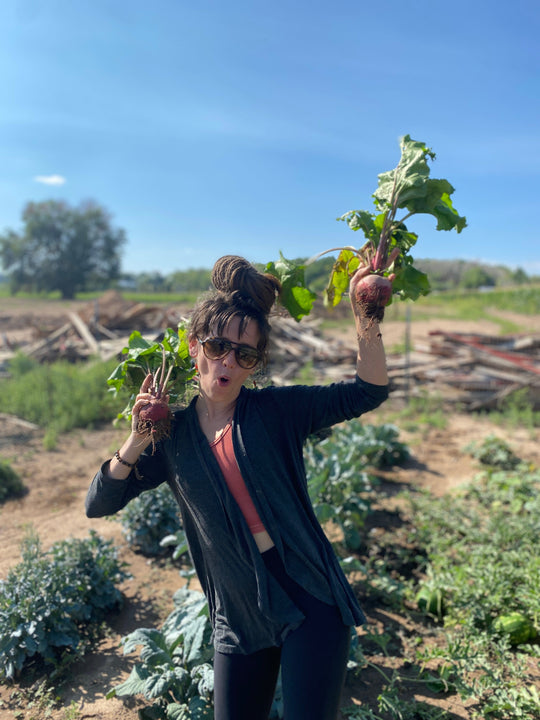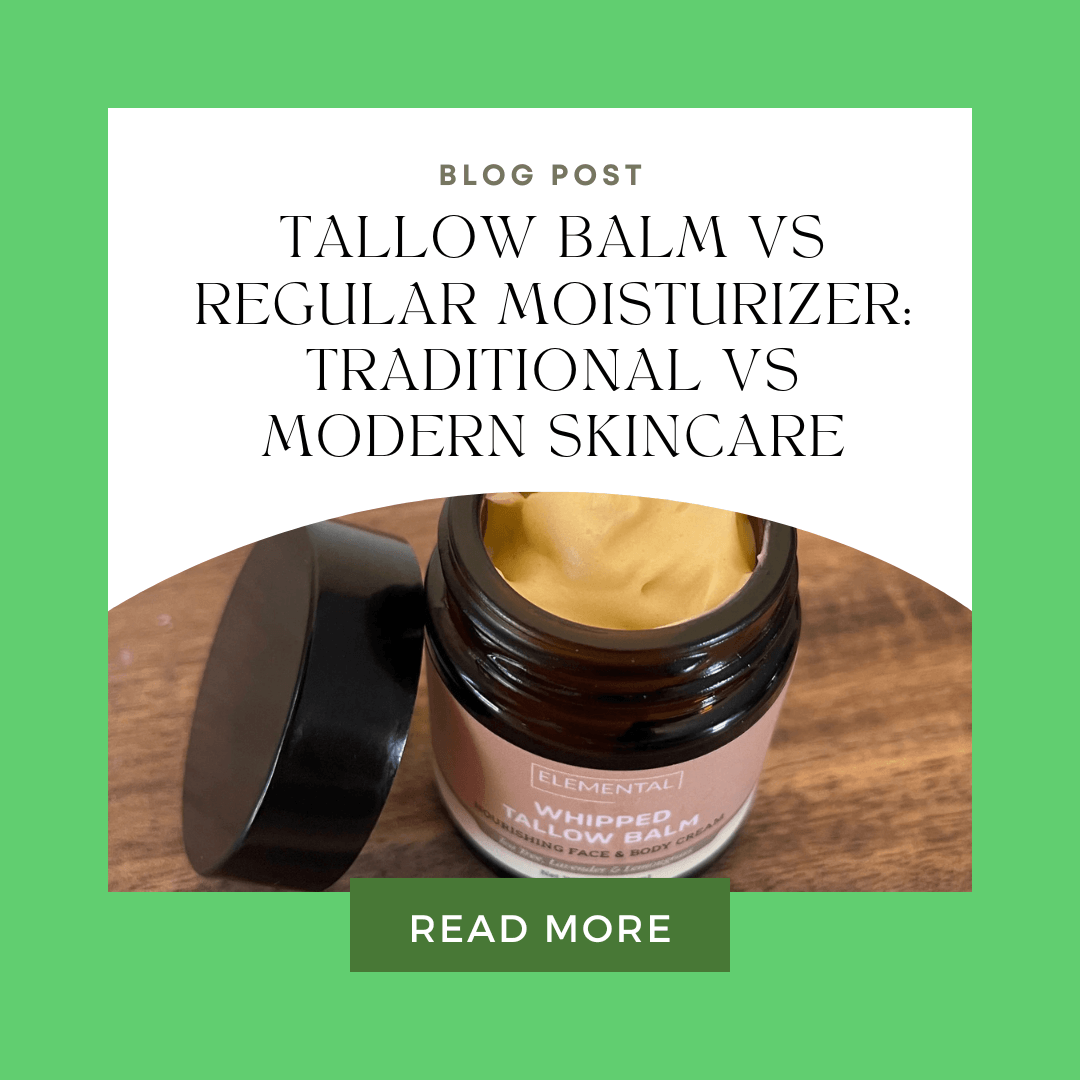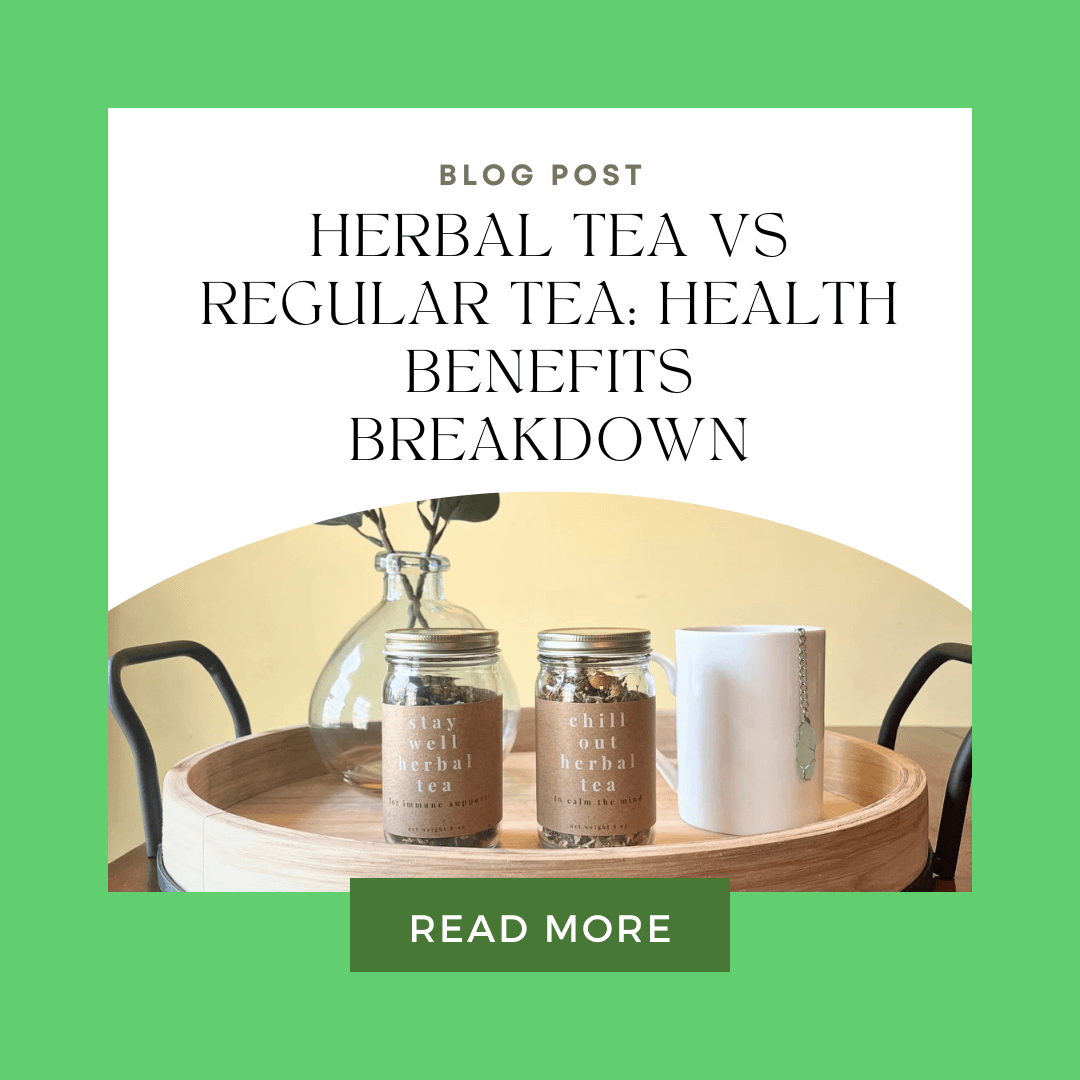Herbal Tea vs Regular Tea: Health Benefits Breakdown 2025
Ancient Ayurvedic wisdom meets modern science: Why your tea choice could be the most important health decision you make each day.
Every morning, millions of people reach for their favorite cup of tea, but 85% don't realize the profound health differences between their choices. As someone with an M.S. in Ayurveda and Integrative Medicine, I've witnessed how the right tea selection can transform energy levels, sleep quality, and overall wellness. The distinction between herbal teas and regular teas goes far beyond caffeine content—it's about choosing targeted therapeutic benefits versus general stimulation.
This comprehensive guide breaks down the science behind tea's health benefits, helping you make informed choices for your unique wellness goals. Whether you're seeking morning energy, afternoon focus, or evening relaxation, understanding these differences will revolutionize your tea ritual.
Understanding Tea Categories: The Foundation of Choice
The tea world divides into two fundamental categories, each offering distinct health benefits and therapeutic applications.
True Teas: The Camellia Sinensis Family
All "true" teas originate from the Camellia sinensis plant, with their differences arising from processing methods and oxidation levels:
Black Tea undergoes full oxidation, creating robust flavors and the highest caffeine content. The oxidation process develops theaflavins and thearubigins—powerful compounds that support cardiovascular health and provide antioxidant protection.
Green Tea receives minimal oxidation, preserving high levels of catechins, particularly EGCG (epigallocatechin gallate). This minimal processing maintains the tea's natural green color and creates its distinctive fresh, sometimes grassy flavor profile.
White Tea represents the most delicate processing, using only young buds and minimal handling. This gentle approach preserves the highest antioxidant levels while providing the subtlest caffeine presence.
Oolong Tea falls between green and black tea in oxidation levels, offering a complex flavor profile and balanced caffeine content. Traditional Chinese medicine values oolong for its ability to support metabolism and fat digestion.
Herbal Teas: Nature's Pharmacy
Herbal teas, technically called tisanes, encompass any plant infusion that doesn't contain Camellia sinensis. These caffeine-free alternatives offer targeted therapeutic benefits:
Root-Based Teas like ginger and turmeric provide grounding, warming energy and support digestive health through their aromatic compounds and essential oils.
Leaf-Based Teas such as peppermint and chamomile offer cooling, calming properties ideal for stress relief and digestive support.
Flower-Based Teas including hibiscus and elderflower provide beautiful colors and gentle therapeutic effects, often rich in anthocyanins and flavonoids.
Adaptogenic Herbs like ashwagandha and rhodiola help the body manage stress more effectively, supporting adrenal health and promoting balanced energy throughout the day.
At Elemental Wellness, our herbal tea collection reflects this therapeutic approach. Our Stay Well Loose Leaf Herbal Tea combines immune-supporting herbs with traditional Ayurvedic principles, while our Chill Out Loose Leaf Herbal Tea offers evening relaxation through carefully selected calming herbs.
Caffeine Content: Understanding Your Energy Sources
The caffeine conversation represents one of the most significant differences between regular and herbal teas, affecting everything from sleep patterns to anxiety levels.
True Tea Caffeine Levels
| Tea Type | Caffeine Content | Optimal Timing | Duration of Effect |
|---|---|---|---|
| Black Tea | 40-70mg | Morning | 4-6 hours |
| Green Tea | 25-45mg | Mid-morning to afternoon | 3-4 hours |
| White Tea | 15-30mg | Anytime except evening | 2-3 hours |
| Oolong Tea | 30-50mg | Morning to early afternoon | 3-5 hours |
| Herbal Tea | 0mg | Anytime | N/A |
The Caffeine Advantage
Moderate caffeine intake provides several documented benefits:
Mental Alertness: Caffeine blocks adenosine receptors, reducing fatigue and improving focus for 3-6 hours post-consumption.
Metabolism Support: Studies show caffeine can increase metabolic rate by 3-11%, supporting weight management goals.
Physical Performance: Pre-workout caffeine consumption can improve endurance and reduce perceived exertion.
Antioxidant Enhancement: Caffeine may enhance the absorption of tea's beneficial compounds, particularly catechins in green tea.
When Caffeine Becomes Problematic
Despite its benefits, caffeine presents challenges for many people:
Sleep Disruption: Consuming caffeine after 2 PM can interfere with sleep quality, even if you don't feel actively stimulated.
Anxiety Amplification: Those prone to anxiety may find caffeine exacerbates symptoms, creating a cycle of stress and stimulation.
Dependency Development: Regular caffeine use can lead to withdrawal symptoms including headaches, fatigue, and irritability.
Digestive Sensitivity: Some people experience stomach upset, acid reflux, or digestive discomfort from caffeinated beverages.
Who Should Choose Caffeine-Free Options
Certain populations benefit significantly from choosing herbal over caffeinated teas:
- Pregnant and breastfeeding women: Caffeine can cross the placenta and pass through breast milk
- Children and adolescents: Developing nervous systems are more sensitive to stimulants
- Those with anxiety disorders: Caffeine can trigger or worsen anxiety symptoms
- People with insomnia: Even morning caffeine can affect sensitive individuals' sleep
- Individuals with heart conditions: Caffeine may affect heart rhythm and blood pressure
Health Benefits Deep-Dive: Antioxidants and Beyond
Both regular and herbal teas offer significant health benefits, though through different mechanisms and compounds.
Antioxidant Powerhouses
Regular Tea Antioxidants:
Catechins in green tea, particularly EGCG, demonstrate powerful anti-cancer properties and support cardiovascular health. Research shows these compounds may help prevent cell damage and reduce inflammation throughout the body.
Theaflavins in black tea provide similar antioxidant benefits while supporting healthy cholesterol levels and cardiovascular function.
Polyphenols present in all true teas offer broad-spectrum antioxidant protection, helping combat oxidative stress linked to aging and chronic disease.
Herbal Tea Antioxidants:
Anthocyanins in hibiscus tea provide the vibrant red color while supporting healthy blood pressure and cardiovascular function.
Flavonoids in chamomile offer anti-inflammatory benefits and support immune system function.
Rosmarinic Acid in herbs like rosemary and lemon balm provides neuroprotective benefits and supports cognitive function.
Digestive Health: A Clear Winner Emerges
When it comes to digestive support, herbal teas demonstrate clear advantages:
Regular Tea Challenges:
- Tannins in black tea can inhibit iron absorption when consumed with meals
- Caffeine may irritate sensitive stomachs or exacerbate acid reflux
- Strong teas consumed on empty stomachs can cause nausea in sensitive individuals
Herbal Tea Benefits:
- Ginger reduces nausea, supports digestion, and has anti-inflammatory properties
- Peppermint soothes digestive upset, reduces bloating, and calms stomach cramping
- Fennel aids digestion, reduces gas, and supports healthy gut function
- Chamomile calms digestive inflammation and supports overall gut health
Our digestive wellness approach incorporates these traditional uses with modern understanding of gut health.
Sleep and Relaxation: Herbal Teas Shine
For evening wellness and sleep support, herbal teas provide unmatched benefits:
Regular Tea Limitations:
- Caffeine can disrupt sleep patterns even when consumed 6-8 hours before bedtime
- While green tea contains L-theanine (promoting calm alertness), the caffeine content often overrides this benefit in sensitive individuals
Herbal Tea Advantages:
- Chamomile contains apigenin, which binds to brain receptors to promote sleepiness
- Passionflower increases GABA production, reducing anxiety and promoting relaxation
- Lemon Balm calms the nervous system and supports restful sleep
- Valerian Root acts as a natural sedative, helping with both falling asleep and sleep quality
Immune System Support: Different Approaches, Powerful Results
Both tea categories support immune function through different mechanisms:
Regular Tea Immune Benefits:
- EGCG in green tea demonstrates antiviral properties against influenza and other viruses
- Theaflavins in black tea support immune cell function and help fight infections
- General antioxidant activity supports overall immune system health
Herbal Tea Immune Benefits:
- Echinacea stimulates immune cell activity and may reduce cold duration
- Elderberry provides antiviral compounds and high vitamin C content
- Ginger offers antimicrobial effects and supports immune response
Our Stay Well Herbal Tincture and Stay Well Loose Leaf Herbal Tea combine these immune-supporting herbs
Targeted Health Applications: Choosing Your Therapeutic Tea
Understanding specific health applications helps you select the most beneficial tea for your current needs.
Stress and Anxiety Management
Best Regular Tea Choice: Green tea offers the optimal balance of caffeine and L-theanine, providing calm alertness without the jitters associated with coffee. The amino acid L-theanine promotes alpha brain wave activity, associated with relaxed focus.
Superior Herbal Options:
- Our Chill Out Herbal Tincture provides concentrated stress relief in convenient liquid form
- Chamomile reduces anxiety through its action on GABA receptors in the brain
- Lemon Balm calms nervous system activity and reduces stress hormone production
- Ashwagandha (found in our adaptogenic blends) helps the body manage stress more effectively
Ayurvedic Perspective: From an Ayurvedic viewpoint, stress often represents excess Vata dosha. Grounding herbs like valerian root, combined with naturally sweet herbs like lavender, help restore balance.
Energy and Mental Focus
Best Regular Tea Choice: Matcha provides sustained energy release due to its unique preparation method, which includes consuming the entire tea leaf. This provides a more stable caffeine experience with enhanced L-theanine content.
Herbal Energy Alternatives:
- Ginseng offers natural energy without caffeine, supporting adrenal function
- Yerba Mate provides caffeine from a different plant source, often better tolerated than coffee
- Our Vital Chai Energizing Adaptogenic Cacao Chai Latte Mix combines traditional chai spices with adaptogenic herbs for sustained energy
Timing Strategy: Consume caffeinated teas in the morning for natural energy alignment with circadian rhythms, transition to adaptogenic herbs in the afternoon for sustained energy without evening sleep disruption.
Immune System Support
Best Regular Tea Choice: White tea contains the highest antioxidant levels due to minimal processing, providing broad-spectrum immune support.
Targeted Herbal Approaches:
- Our Stay Well collection specifically targets immune function with carefully selected herbs
- Echinacea for active immune stimulation during illness onset
- Elderberry for antiviral support, particularly during flu season
- Rose Hips for high vitamin C content and overall immune nourishment
Seasonal Strategy: Use prevention-focused herbal blends during healthy periods, switch to more active immune-supporting herbs at first signs of illness.
Sleep and Recovery Support
Avoid: All caffeinated teas after 2 PM for optimal sleep quality.
Evening Herbal Ritual:
- Chamomile for gentle sleep induction and anxiety reduction
- Valerian Root for deeper sleep and reduced sleep latency
- Passionflower for anxiety relief and improved sleep quality
- Lavender for relaxation and stress reduction
Evening Ritual Timing: Consume herbal sleep teas 30-60 minutes before desired bedtime to allow compounds to take effect.
Quality Matters: Loose Leaf vs Tea Bags
The quality difference between loose leaf and bagged teas significantly impacts health benefits and flavor experience.
Loose Leaf Advantages
Higher Quality Ingredients: Loose leaf teas typically contain whole leaves and larger pieces, preserving more beneficial compounds and essential oils.
Better Flavor Extraction: Whole leaves have more surface area for proper steeping, extracting more beneficial compounds and creating superior flavor profiles.
No Microplastics Concern: Many tea bags, particularly pyramid bags, are made from plastic that can release microplastics when steeped in hot water.
Sustainable Packaging: Loose leaf teas typically use less packaging and avoid the waste associated with individual tea bags.
Customizable Strength: You control the amount of tea used, allowing for stronger therapeutic doses when needed.
Tea Bag Concerns
Lower Grade Ingredients: Tea bags often contain "fannings" and "dust"—broken pieces and particles left over after higher-grade teas are selected.
Limited Steeping Potential: Compressed leaves in small bags can't fully expand, limiting compound extraction.
Chemical Concerns: Some tea bags are bleached with chlorine or contain plastic components that may leach into hot water.
Environmental Impact: Individual packaging creates significantly more waste than bulk loose leaf storage.
Our Quality Commitment
At Elemental Wellness, we exclusively offer premium loose leaf formulations. Our herbal tea collection uses whole herbs and carefully selected plant parts to maximize therapeutic benefits while providing exceptional flavor experiences.
Why Loose Leaf Matters for Health: Therapeutic compounds in herbs are often concentrated in essential oils and volatile compounds that dissipate quickly when herbs are broken down. Whole leaf and herb preservation maintains these beneficial compounds until steeping.
Blending Strategies: Combining Regular and Herbal Teas
Creating custom blends allows you to enjoy benefits from both tea categories while tailoring effects to your specific needs.
Morning Energy Blends
Green Tea + Ginger + Lemon: Combines gentle caffeine with digestive support and vitamin C for immune function.
Black Tea + Cardamom + Cinnamon: Traditional chai spices provide warming energy and blood sugar support alongside caffeine.
White Tea + Peppermint: Offers antioxidant benefits with refreshing mint for mental clarity.
Afternoon Focus Blends
Green Tea + Ginkgo + Rosemary: Supports cognitive function and memory while providing sustained energy.
Oolong + Tulsi (Holy Basil): Balances stimulation with adaptogenic stress support.
White Tea + Chamomile: Provides antioxidants with gentle calming effects for afternoon stress relief.
Evening Transition Blends
Rooibos + Lavender: Caffeine-free base with relaxation support.
Chamomile + Lemon Balm + Passionflower: Triple-threat for anxiety relief and sleep preparation.
Tulsi + Ashwagandha: Adaptogenic support for stress recovery and evening calm.
Seasonal Adjustments
Spring: Lighter teas with detoxifying herbs like dandelion and nettle to support the body's natural cleansing processes.
Summer: Cooling herbs like peppermint and hibiscus, possibly combined with green tea for refreshing hydration.
Fall: Warming spices like cinnamon, cardamom, and ginger to support circulation and immune function.
Winter: Deeper, more warming blends with black tea, chai spices, and immune-supporting herbs.
Brewing Techniques for Maximum Health Benefits
Proper brewing technique significantly impacts the therapeutic value and flavor of your tea.
Water Temperature: The Critical Factor
Green Tea: 175°F (79°C) prevents bitterness while extracting beneficial catechins. Boiling water destroys delicate compounds and creates astringent, unpalatable tea.
Black Tea: 200-212°F (93-100°C) fully extracts robust flavors and beneficial theaflavins without compromising quality.
White Tea: 185°F (85°C) preserves delicate flavors while extracting antioxidant compounds.
Herbal Teas: 212°F (100°C) boiling water helps release therapeutic compounds from herbs, barks, and roots.
Steeping Time: Balancing Flavor and Benefits
Green Tea: 2-3 minutes provides optimal balance of beneficial compounds without excessive tannins.
Black Tea: 3-5 minutes extracts full flavor and health compounds.
White Tea: 4-6 minutes allows gentle extraction of delicate compounds.
Herbal Teas: 5-7 minutes (or longer for therapeutic purposes) ensures full extraction of plant compounds.
Multiple Infusions: Maximizing Value
High-quality loose leaf teas can be steeped multiple times, each infusion revealing different flavor notes and compounds:
First Infusion: Provides immediate flavor and water-soluble compounds.
Second Infusion: Often reveals deeper, more complex flavors and additional beneficial compounds.
Third+ Infusions: Some teas, particularly oolongs and pu-erhs, provide 4-6 flavorful infusions.
Advanced Brewing Tips
Pre-warming: Rinse teapots and cups with hot water to maintain optimal steeping temperature.
Proper Ratios: Use 1 teaspoon loose leaf tea per cup, adjust for personal preference and desired strength.
Covered Steeping: Cover teapots and cups during steeping to prevent volatile compounds from escaping.
Timing Precision: Use timers for consistent results and optimal compound extraction.
When to Choose Which Tea: A Daily Guide
Understanding optimal timing for different teas maximizes their health benefits while supporting natural circadian rhythms.
Morning (6-10 AM): Gentle Awakening
Best Choice: Green or white tea provides gentle caffeine with sustained energy release.
Avoid: Strong black tea on empty stomach, which may cause nausea in sensitive individuals.
Herbal Alternative: Adaptogenic blends like our Vital Chai provide energy without caffeine dependency.
Mid-Morning (10 AM-12 PM): Peak Productivity
Best Choice: Black tea or stronger green tea for maximum alertness during peak productivity hours.
Timing: This period allows caffeine metabolism before afternoon energy crashes.
Afternoon (12-3 PM): Sustained Focus
Best Choice: Light green tea or herbal blends to maintain focus without interfering with evening sleep.
Avoid: High-caffeine teas that may disrupt sleep in sensitive individuals.
Strategic Choice: Adaptogenic herbs support sustained energy without stimulation.
Late Afternoon (3-6 PM): Transition Period
Best Choice: Herbal teas begin the transition from active day to evening relaxation.
Recommended: Tulsi (holy basil) provides adaptogenic support during stressful end-of-day periods.
Evening (6 PM+): Relaxation and Recovery
Essential: Only caffeine-free herbal teas to support natural melatonin production.
Best Choices: Chamomile, passionflower, or custom relaxation blends.
Bedtime Ritual: Herbal tea 30-60 minutes before bed creates healthy sleep associations.
Stressful Periods: Targeted Support
High Stress Days: Adaptogenic herbal blends help manage stress response more effectively than caffeine.
Illness Recovery: Immune-supporting herbal teas provide targeted therapeutic benefits.
Digestive Issues: Ginger, peppermint, and fennel teas offer immediate relief and support.
Frequently Asked Questions
Can I drink herbal tea during pregnancy?
Pregnancy requires careful herb selection, as some herbs are contraindicated during this time. Generally safe options include ginger (for nausea), chamomile (in moderation), and peppermint. Always consult healthcare providers before using any herbal products during pregnancy or breastfeeding.
How much tea is safe to drink daily?
For caffeinated teas, limit intake to 400mg caffeine daily (roughly 4-6 cups of green tea or 2-4 cups of black tea). Herbal teas can generally be consumed more liberally, though rotation between different herbs prevents overexposure to any single compound.
Do herbal teas interact with medications?
Yes, some herbs can interact with medications. St. John's Wort affects many prescription drugs, while herbs like ginkgo may increase bleeding risk with blood thinners. Always inform healthcare providers about herbal tea consumption, especially if taking medications.
Which teas help with weight management?
Green tea, oolong tea, and pu-erh tea contain compounds that may support metabolism and fat oxidation. Herbal options include dandelion (mild diuretic), nettle (nutritive support), and cinnamon (blood sugar support). However, tea should complement, not replace, healthy diet and exercise.
Can children drink herbal teas?
Many herbal teas are safe for children in appropriate amounts. Chamomile, peppermint, and ginger are generally well-tolerated. Avoid stimulating herbs like ginseng and limit strong medicinal herbs. Always dilute herbal teas for young children and introduce one herb at a time.
How long do dried herbs maintain potency?
Properly stored dried herbs maintain potency for 1-3 years, depending on the plant part. Leaves and flowers lose potency faster than roots and barks. Store in airtight containers away from light and heat for maximum preservation.
What's the difference between herbal teas and herbal supplements?
Herbal teas provide gentle, sustained exposure to plant compounds, while supplements offer concentrated doses. Teas are generally safer for daily use, while supplements should be used more targeted therapy. Both have their place in natural wellness approaches.
Our Tea Recommendations: Therapeutic Blends for Every Need
Based on years of formulation experience and Ayurvedic principles, here are our top recommendations for specific health goals:
Best Morning Energy: Vital Chai Energizing Adaptogenic Cacao Chai Latte Mix
This unique blend combines traditional chai spices with adaptogenic herbs and cacao for sustained energy without caffeine crashes. The warming spices support circulation and digestion, while adaptogens help manage daily stress.
Why It Works: Cacao provides gentle stimulation through theobromine, while adaptogens like ashwagandha support steady energy production at the cellular level.
Best For: Those seeking sustainable energy, people sensitive to caffeine, and anyone wanting warming, grounding morning energy.
Best Stress Relief: Chill Out Loose Leaf Herbal Tea
Our carefully crafted blend combines chamomile, lavender, and other calming herbs for comprehensive stress relief. This caffeine-free formula works throughout the day to support nervous system balance.
Why It Works: Multiple herbs target different aspects of stress response—some work on GABA receptors, others support adrenal function, creating comprehensive calm.
Best For: High-stress periods, evening relaxation, anxiety management, and sleep preparation.
Best Immune Support: Stay Well Loose Leaf Herbal Tea
This immune-supporting blend combines traditional herbs like echinacea and elderberry with warming spices to support your body's natural defenses.
Why It Works: Different herbs support various aspects of immune function—some stimulate immune cell activity, others provide antiviral compounds, creating comprehensive protection.
Best For: Seasonal immune support, travel wellness, and recovery periods.
Best All-Around Choice: High-Quality Organic Green Tea + Herbal Rotation
For maximum flexibility and health benefits, maintain a base of quality organic green tea for morning use, rotating between different herbal teas throughout the day based on current needs.
Why This Works: Green tea provides proven health benefits and gentle caffeine, while herbal rotation prevents tolerance and provides targeted therapeutic support as needed.
Daily Strategy: Green tea in morning, adaptogenic herbs in afternoon, relaxing herbs in evening.
Conclusion: Your Personalized Tea Strategy
The choice between herbal and regular tea isn't binary—it's about creating a personalized approach that supports your unique health goals, lifestyle, and preferences. Regular teas provide proven antioxidant benefits and gentle stimulation, while herbal teas offer targeted therapeutic effects without caffeine concerns.
For Optimal Wellness: Use regular teas strategically for morning energy and antioxidant benefits, incorporate herbal teas throughout the day for specific therapeutic effects, and always choose caffeine-free options in the evening.
Quality Matters: Whether choosing regular or herbal teas, prioritize organic, loose leaf options from reputable sources. The difference in both flavor and therapeutic benefit justifies the investment.
Listen to Your Body: Pay attention to how different teas affect your energy, sleep, digestion, and overall wellbeing. Your optimal tea strategy may evolve with seasons, stress levels, and life changes.
Start Your Tea Journey: Explore our thoughtfully crafted tea collection, designed to support your wellness goals with traditional wisdom and modern quality standards.
Your daily tea ritual represents an opportunity for both health support and mindful moments. Choose teas that nourish your body while bringing joy to your day, and experience the profound difference that intentional tea selection can make in your overall wellness journey.
Discover the perfect tea for every moment with our premium herbal tea collection, crafted with organic ingredients and traditional wellness wisdom.





